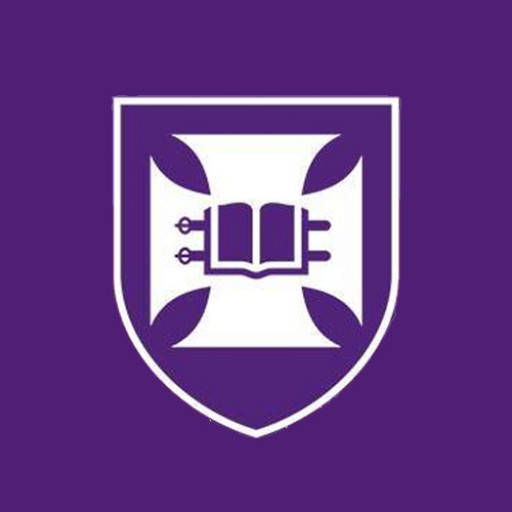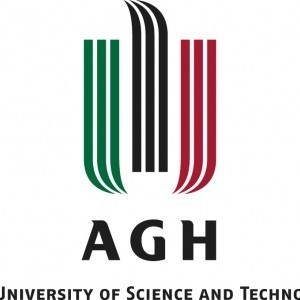Photos of university / #dtudk
The MSc in Sustainable Energy at the Technical University of Denmark is a comprehensive and innovative program designed to prepare students for a successful career in the rapidly evolving field of sustainable energy technologies and systems. This interdisciplinary program combines principles of engineering, environmental science, economics, and policy to address the global challenges of energy demand, climate change, and sustainable development. Students will engage in cutting-edge research and practical projects that focus on renewable energy sources such as wind, solar, bioenergy, and hydropower, as well as energy storage, smart grids, and energy efficiency measures. The program emphasizes a strong technical foundation alongside an understanding of the economic and societal implications of sustainable energy solutions, enabling graduates to contribute effectively to the transition towards a low-carbon energy sector. Students will have access to state-of-the-art laboratories and research facilities at DTU, including specialized centers dedicated to renewable energy and energy systems. The curriculum includes coursework in thermodynamics, power systems, control engineering, and environmental assessment, complemented by opportunities for internships and collaborative projects with industry partners. Graduates of the program are well-equipped for careers in engineering consultancy, energy companies, policy advisory roles, and research institutions, where they can influence the development and implementation of sustainable energy systems worldwide. With a focus on innovation, sustainability, and practical application, the MSc in Sustainable Energy at DTU aims to shape the future leaders who will drive the global energy transition towards cleaner and more sustainable solutions. The program typically spans two years and is delivered in English, attracting students from around the world, fostering a diverse and dynamic academic community committed to advancing sustainable energy technologies and policies.
In order to obtain the MSc degree in Sustainable Energy the student must fulfil the following requirements:
- Have passed General Competence Courses adding up to at least 30 points
- Have passed Technological Specialization Courses adding up to 30 or 35 points depending on study line
- Have completed a Master Thesis of at least 30 points within the field of the chosen study line
- Have passed a sufficient number of Elective Courses to bring the total number of points of the entire study up to 120 points.
Only applicants holding either a Bachelor of Science in Engineering, a Bachelor in Engineering or a Bachelor of Natural Science degree can be admitted to a Master of Science in Engineering programme. From September 2017 the bachelor degree must be less than 10 years old.
The individual MSc Eng programme states in detail which bachelor programmes qualify and whether applicants have to complete supplementary educational activities.
Requirements for supplementary educational activities can equate to up to 30 ECTS credits and are specified in the form of a list of courses under the individual MSc Eng programmes.
The specific requirements must be met before graduating from the bachelor programme or in connection with conditional admission to a particular MSc Eng programme. The courses must be passed prior to the commencement of studies within one year from the conditional admission.
Supplementary educational activities in connection with conditional admission to an MSc Eng programme do not form part of the MSc Eng programme, and partial tuition fees are charged. If the supplementary courses have not been passed within the deadlines specified, the conditional admission to the programme is withdrawn.
The Master of Science in Engineering programmes are offered in English. Therefore applicants must demonstrate proficiency in English (B-level, IELTS, TOEFL- or Pearson test).
Academic requirements for this programme
The admission requirements for this programme are specific for each study line and all students are admitted in just one line (see specific requirements below)
Bachelor of Science in Engineering from DTU
The following Bachelor of Science in Engineering programmes from DTU entitle students to admission to at least one of the study lines of the MSc Eng programme in Sustainable Energy.
- Mechanical Engineering
- Electrical Engineering
- Biotechnology
- Chemical Engineering
- Physics and Nanotechnology
- Civil Engineering
- Architectural Engineering
- Design and Innovation
- Strategical Analysis and Systems Design (only Electric Systems, Energy Savings and Thermal Energy lines with specific requirements)
In order to get the most out of the MSc-study it is recommended to use the bachelor to achieve the right prerequisites for the MSc-study.
Bachelor of Science in Engineering and bachelor of Natural Science from other universities
Bachelors of Science in Engineering and Bachelors of Natural Science from other Danish universities are admitted to the MSc in Engineering (Sustainable Energy) if their qualifications are equivalent to those of Bachelors of Science in Engineering from DTU.
The specific course requirements for the six study lines can be found on the study homepage.
Bachelor of Engineering
The following Bachelors of Engineering from DTU have access to be admitted to one of the study lines on the programme,
- Architectural Engineering
- Arctic Technology
- Building and Civil Engineering, specialization in Construction Engineering
- Civil and Structural Engineering
- Mechanical Engineering
- Electrical and Electronic Engineering
- Electrical Power Engineering
- Chemistry and Biotechnology
- Sustainable Energy Engineering, specialization in thermal or electrical engineering
Subject to have completed at least 10 ECTS credit points of the following courses and fulfill the line specific requirements:
| 01035 | Advanced Engineering Mathematics 2 | 5 | point | E1A (Mon 8-12), E2B (Thurs 8-12), F2B (Thurs 8-12) |
| 01037 | Advanced Engineering Mathematics 2 (Summer University) | 5 | point | August |
| 02405 | Probability theory | 5 | point | E4B (Fri 8-12) |
| 02601 | Introduction to Numerical Algorithms | 5 | point | F1B (Thurs 13-17) |
| 11305 | Computational Structural Modelling 1: The Finite Element Method | 5 | point | E4A (Tues 13-17) |
| 42101 | Introduction to Operations Research | 5 | point | E2A (Mon 13-17), F2A (Mon 13-17) |
The 10 points can also be obtained from research based Academic Institutions teaching courses having equivalent content and level as the DTU courses listed above.
Bachelors of Engineering from other Academic Institutions than DTU have access to be admitted if they fulfill the prerequisites mentioned above.
Line specific admission requirements:
Electric Energy Systems:
BSc in Electrical Engineering, BSc in Energy Engineering, BSc in Energy Technology Engineering, BSc in Strategical Analysis and Systems Design Engineering or similar with specific coverage of content in:
- 31001 Electric circuits 1
- 31400 Electromagnetics
- or 31730 - Electric Power Engineering, fundamentals
Thermal Energy:
BSc in Production and Engineering Design (DTU), BSc in Mechanical Engineering with energy specialisation, BSc in Industrial Engineering with energy or BSc in Energy Engineering, BSc in Design and Innovation Engineering, BSc in Strategical Analysis and Systems Design Engineering
Including coverage of content similar to DTU courses:
- 41312 Basic Fluid Mechanics or 41065 Fields and flows or 62657
- 41401 Fundamentals of Engineering Thermodynamics or 41045 Thermodynamic Modelling
Energy Savings:
BSc in Civil Engineering, BSc in Architectural Engineering, BSc in Strategical Analysis and Systems Design Engineering with courses:
- 11112 Technical Building Services 1 and
- 11121 - Thermal Building Physics
Hydrogen and fuel cells:
BSc in Engineering, physics and nanotechnology, BSc in Physics, BSc in Nanoscience, BSc in Chemistry
Wind Energy:
BSc in Electrical Engineering, BSc in Mechanical Engineering or BSc in Energy Engineering including basic electric courses
Biofuels:
BSc in Biotechnology Engineering, BSc in Chemical Engineering
The financing of the Sustainable Energy master's program at the Technical University of Denmark is primarily supported through a combination of tuition fees, government grants, scholarships, and financial aid options. International students are required to pay tuition fees, which vary depending on their nationality; EU/EEA students benefit from reduced fees due to Danish regulations, while non-EU/EEA students typically pay higher tuition rates. The university offers a limited number of scholarships based on academic excellence, motivation, and sometimes financial need, to assist outstanding students in financing their studies. These scholarships may cover partial or full tuition fees, and students are encouraged to apply early during the admissions process. Additionally, students can explore external funding opportunities through Danish government programs, private foundations, and international organizations, which often provide grants or loans for students pursuing higher education in Denmark. The Danish government offers student loans and grants to eligible students through the Danish Agency for International Recruitment and Integration (SIRI). Students are also advised to seek external scholarships from their home countries, multinational corporations, or organizations promoting education, research, and innovation in sustainable energy. The university's career services and dedicated counselling offices assist students in identifying suitable funding sources, preparing applications, and managing finances throughout their academic journey. Furthermore, students may consider part-time work opportunities on or near campus, as Denmark has a flexible work permit policy for international students, enabling them to work up to 20 hours per week during semester periods. This can help cover living expenses, thereby reducing the overall financial burden of studying in Denmark. The program's overall financial structure aims to make education accessible while promoting study in a sustainable and environmentally responsible manner. Students are encouraged to plan their finances well in advance and utilize all available resources to ensure successful completion of their Master's degree in Sustainable Energy.
The MSc in Sustainable Energy at the Technical University of Denmark is a comprehensive and interdisciplinary program designed to equip students with the knowledge and skills necessary to address the global challenges related to energy production, consumption, and sustainability. The program focuses on the development and implementation of sustainable energy technologies, policies, and innovations necessary for a transition to low-carbon energy systems. Students explore various aspects of energy systems, including renewable energy sources such as wind, solar, biomass, and geothermal, as well as energy storage, grid integration, and energy efficiency measures. The curriculum emphasizes both theoretical understanding and practical applications, preparing students for careers in research, industry, consultancy, or policy-making.
Throughout the program, students will gain expertise in energy management, environmental impact assessment, and economic analysis of energy projects. They also learn about the technological, environmental, and societal challenges of adopting sustainable energy solutions on a global scale. The program combines coursework, project work, and laboratory exercises to foster innovation, problem-solving skills, and teamwork. Students may have opportunities for internships and collaborations with industry partners, research institutions, or government agencies, providing real-world experience.
The program is typically structured to include core courses in energy systems, renewable energy technologies, power systems, and sustainable development, complemented by elective courses tailored to individual interests or emerging fields within sustainable energy. The theoretical components are reinforced through hands-on projects, case studies, and master’s thesis work, often involving cutting-edge research or industry projects. Graduates of the MSc in Sustainable Energy are well-positioned to contribute to the development of sustainable energy policies, technological advancements, or business solutions that promote environmental sustainability and energy security.
The university's strong focus on innovation and collaboration ensures that students are engaged with current industry and research trends. The program is conducted in English, attracting students from around the world, fostering a diverse learning environment. Overall, the MSc in Sustainable Energy at DTU prepares graduates to be future leaders in creating a sustainable energy landscape, aligned with the global goals for climate change mitigation and sustainable development.






